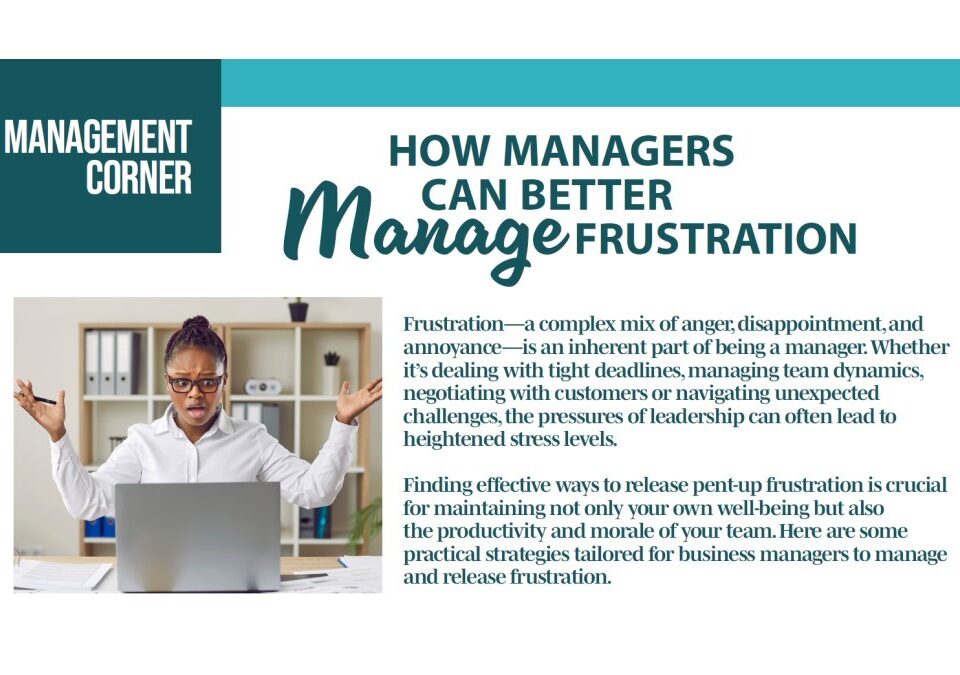
Revamping Employee and Sales Training in Light of COVID
March 21, 2022
Access Control System Considerations
July 26, 2022Family Business: How to Bring in the Younger Generation
Bringing a family member into the family business should be done only after careful thought. In many cases, families and businesses mix very well. For the next generation, the years of exposure of the business can be instrumental in establishing a vast knowledge base, and loyalty to the family business is another benefit.
Hopefully, you read my column in the March issue of Fence News about planning for the transition of including family members in the business. Now, let’s look at things to consider when transferring ownership within the family.
Deal objectively with the relative’s qualifications. We forget that relatives will bring to the job additional experience and all they may need is training into the specific industry or business. Talk in advance about how they will train. Will they start at the bottom and learn every aspect of the business? Will they rely on others for training? Will they start at the top? In the end, the answer could turn out to be a combination of all methods. It’s best to get a plan together and communicate it clearly; this can help eliminate wasted effort and bruised feelings.
A relative (especially one just out of school) should acquire practice experience elsewhere. This allows a family member to grow and mature away from home and will give him or her a different perspective on how a company is best organized and managed.
Clearly define responsibilities. Many are reluctant to share their position and power in the company. Thus, some jobs are loosely defined and the individual begins to create his own job function and title, but this never allows the individual to be fully confident about his authority or be sure he or she is doing the job the right way.
Divide responsibilities. To avoid power struggles, it’s a good idea to assign each family member a job that they do best. Sit down together, in private, and divide up your roles according to the wants and proper functions. You could make it an office retreat and get away for an afternoon or a day, away from interruptions. Each will, at times and especially during the division, fight for their own bit of turf, and this can cause the functions to overlap. Keep the functions separate.
Establish working hours in advance. Are you supposed to work 9 – 5? Are you supposed to be the first to arrive and the last to leave? Are there busy seasons with extended hours? How much travel does the job entail? Those who build a business work long, hard hours and feel this kind of dedication is necessary for success. However, the relative may be a well-organized, no-nonsense manager who believes in hard work but also likes to devote time to family and has outside interests. Those going into a family firm must be prepared to work harder, longer hours in the first five years than they have ever worked in their lives.
Figure out who reports to whom. This might include some discussion of the attitude of some employees who have been with the company for some time. Discuss with the relative how you will be introduced to these employees and in what way you will be working with them. Because of a vague role, many veteran employees feel threatened by a relative’s presence, until they grow to trust and respect him or her.
Plan office space and equipment carefully. The proximity of the offices can be important, and allows them to be privy to important meetings, phone conversations and various business transactions from which they might have been excluded.
Introduce the relative to key outside people. Depending on the position, and especially if it is an heir apparent, introduce him or her to outside contacts as this will help build their credibility. These key people include vendors, of course, but also the team of experts helping your business move forward, such as the banker, accountant, insurance agent and attorney.
Discuss salary and perks in advance. When negotiating salaries, it is vital to talk about raises and bonuses, expenses, and amenities such as cars, insurance, and vacation times. Some family businesses don’t believe in taking vacation unless they are business related. Others might think that vacations are an important time to get away from business to clear the mind.
A relative should be free to do things their own way. Relatives cannot be intimidated by what others might think. Delegate to them the proper responsibility and authority to accomplish the work, step back and monitor their work.
Define the roles of other family members in the business. It is important to discuss the possibility of other relatives coming into the business in the future. The ownership can be concentrated in one or a very few able successors, and the rest of the family can divide the responsibilities into mutually exclusive territories or functions.
Work together on estate planning. A relative should be appraised of all legal estate planning and should be included in any meetings that relate to this.
A relative must begin to learn on his own. Any effective manager has to go further than in-house training. They should be prepared to take courses and attend seminars to improve business management skills, especially as technology changes. This will help prevent some of the same family business errors of the past and avail yourselves of new methods of doing business.
After a year or so, arrange a vacation for the boss. It’s important for the senior family member to see that the business won’t fall apart or go bankrupt without him or her around. This is usually the hardest rule to deal with. Urge them to take an extended vacation and relax for a time.
Establish a family council. This is an excellent way to communicate and to air any problems or differences that might otherwise be overlooked or ignored if they had to be discussed during the business week. Time is on the side of the younger generation, if they can wait long enough to get to do what they want. But, it’s not worth the years of aggravation to reach this point, when problems may be worked out in advance. In the long run, and most importantly, suppliers feel safe with the family firm because they are solid, family-owned and family-operated.
Fight issues, not emotions. This is the most important rule you will learn. Confrontations will happen almost daily if you let them start. Most fight over people hired, or terminated, and money being spent. Discuss plans rationally before working on something new.

Tom Luby
Business Consultant and Fence Industry Spokesperson
Thomas Luby, and Profit Builders International
3421 10th Lane West • Palmetto, Florida 34221
www.profitbuilder.org / tluby@profitbuilder.org / 941-981-3677




